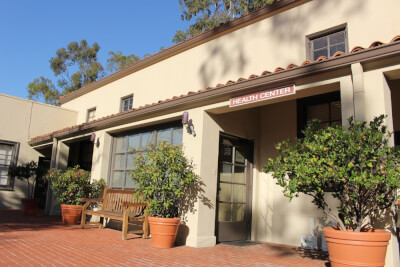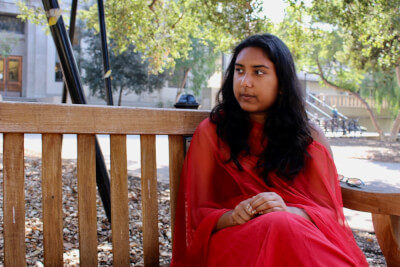
The Diversity and Equity Board (DEB) and the Associated Students of Occidental College (ASOC) Senate hosted a community accountability meeting Oct. 24 from 5:30 p.m. to 7:00 p.m. in Morrison Lounge. The meeting discussed the absence of resources for LGBTQIA+ students at Emmons Wellness Center and other student concerns about Emmons, according to an Oct. 22 campus-wide email from ASOC announcing the event. The new Gender and Sexuality Equity Committee (GSEC), a joint DEB and Senate committee formed this semester, presented their revised recommendations at the Oct. 24 meeting for how Emmons can best address these student concerns.
According to Venitia Boyce (senior), a student life liaison for DEB and member of GSEC, concerns about the quality of Emmons services were first identified in the Fall 2017 semester by a MAC 250 class. For their final project, students in the class were charged with using digital tools to address social problems on campus. After collecting data through a seven-question survey, a group from the class posted a Change.org petition calling for a formal review of Emmons, according to Boyce. Leadership of the project was then transferred to DEB in order to maintain momentum on the project, Boyce said.

In the Spring 2018 semester, Emmons hosted multiple town halls and focus groups to get student feedback and communicate their plans for improvement. According to Boyce, there were two focus groups that had attendees, which were attended exclusively by queer and transgender students of color (QTPOC) and one international student.
“Sixteen people in total attended the focus groups,” Boyce said. “One attended the international students one, and then 15 attended the QTPOC students one.”
GSEC presented the findings from the focus groups at the Oct. 24 meeting. GSEC based their findings on community input they had received, according to Boyce.
According to Boyce, Senate and DEB formed GSEC in response to the findings from the focus groups. Boyce said she felt the findings lacked an adequate understanding of the situation, and that they offered no clear action plans for the future.
“Our long-term goal is really to institutionalize queer resources for all students and provide queer students with a space where they feel safe, respected and are willing to use as even a study space,” Boyce said.
ASOC Senate President Jacques Lesure (senior) said the joint committee is designed to allow collaboration with both the general community and administration. He said he has been personally meeting with the administration to discuss issues impacting the student body.
“I’ve designed a task force structure with the Office of the President. These are 90-minute working sessions comprised of selected students, admin, staff, and the President himself. We dedicated one session to QTPOC resources,” Lesure said via text.
Boyce said both Senate and DEB are prioritizing Emmons accountability this semester.
“It’s one of the main things we’ve organized around in our planning document for ASOC. This is certainly a very collaborative year within ASOC, so it’s really nice to see that,” Boyce said.
The accountability meeting was the first of three addressing student concerns about Emmons. The second meeting, entitled “Rant About Emmons,” occurred Nov. 7. Boyce said the purpose of the second meeting was to engage the student body beyond just QTPOC students and provide a space where students could express their concerns without Emmons staff being present. Emmons will host a town hall within the next few weeks to present their response based on the community input from the first two meetings, according to Boyce. The date for this town hall has not yet been decided.
“We’ve urged them to create an action plan based on our revised recommendations and community input,” Boyce said.
GSEC and students will be able to critique the action plan at the town hall, according to Boyce. She said that she thinks it will be easier to hold Emmons accountable once they have outlined a clear action plan for the future.
According to Sara Semal, senior director of student wellness services, the Emmons staff gained valuable perspective from students present at the first accountability meeting.
“It gave us insight into the ways we can improve our services, ideas on how to share governance with the student body, and the scope of communication necessary to ensure better access and understanding of our services,” Semal said via email. “I and the Emmons team looks (sic) forward to presenting at the next meeting and working with students to identify a path forward.”
Boyce said that the goals of GSEC include more than addressing the absence of resources for QTPOC at Emmons. She said she envisions the committee working with many departments on campus to ensure they are fulfilling their mission of equity and providing adequate support for students. GSEC remains open to all methods of reform and students with privilege play an important role in making those changes, according to Boyce.
“White students, wealthy students, non-immigrant students, all those intersections of privilege really need to understand what it means to have privilege, but also how to use it to help communities that need help,” Boyce said.
According to Boyce, GSEC has received a range of student input so far, mostly calling for change.
“I think at the end of the day, students are excited to see how Emmons can change and grow to better support students, especially QTPOC students and queer students,” Boyce said.
![]()






























